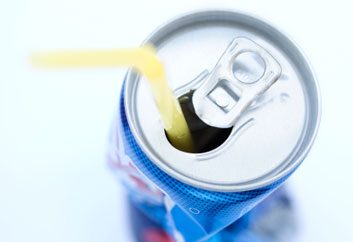Are energy drinks dangerous to your health?
Caffeine has proven health benefits, but how much is too much?

Source: Best Health magazine, December 2012
Recently, the U.S. Food and Drug Administration (FDA) was reportedly investigating five deaths and one heart attack in the U.S. for their possible connection to the consumption of Monster Energy drink. A 24-ounce can of Monster Energy contains about 240 mg of caffeine, according to Monster Beverage Corp.
Energy drinks are not yet clearly labelled with nutritional information, including caffeine content. In October last year, our federal government announced new measures to provide Canadians with more information about energy drinks, which up until that point were classified as Natural Health Products (NHP), and were not required to put nutrition labels on their products. Under the new measures’scheduled to be in effect by late 2013′Health Canada also moved to limit the amount of caffeine in an energy drink to 180 mg in a single serving.
Caffeine is a naturally occurring substance that is found in coffee, cola, tea and chocolate. It’s also added to certain medications, and to soft drinks other than cola, including energy drinks. About 15 minutes after it’s consumed, it’s absorbed into the bloodstream.
When drunk in moderation, caffeine has proven benefits. According to Massimo Marcone, an associate professor and food scientist at the University of Guelph, caffeine ‘travels to the brain, where it acts as a stimulant.’ You may feel wide awake and experience temporary improvement in memory, mood, reflexes and comprehension, he says.
Too much, however, can be harmful to your health: Consuming 600 mg or more a day can spark body shakes, insomnia, irritability, dehydration, dizzy spells, diarrhea and even convulsions. Health Canada states that adult Canadians should consume no more than 400 mg of caffeine per day‘which is equal to approximately three 237 mL cups of coffee.
How much caffeine is in your drink?
‘ Brewed coffee (237 mL): 135 mg
‘ Black tea (237 mL): 43 mg
‘ Green tea (237 mL): 30 mg
‘ Cola (355 mL): 36-46 mg
This article was originally titled "The buzz on caffeine" in the December 2012 issue of Best Health. Subscribe today to get the full Best Health experience’and never miss an issue!




